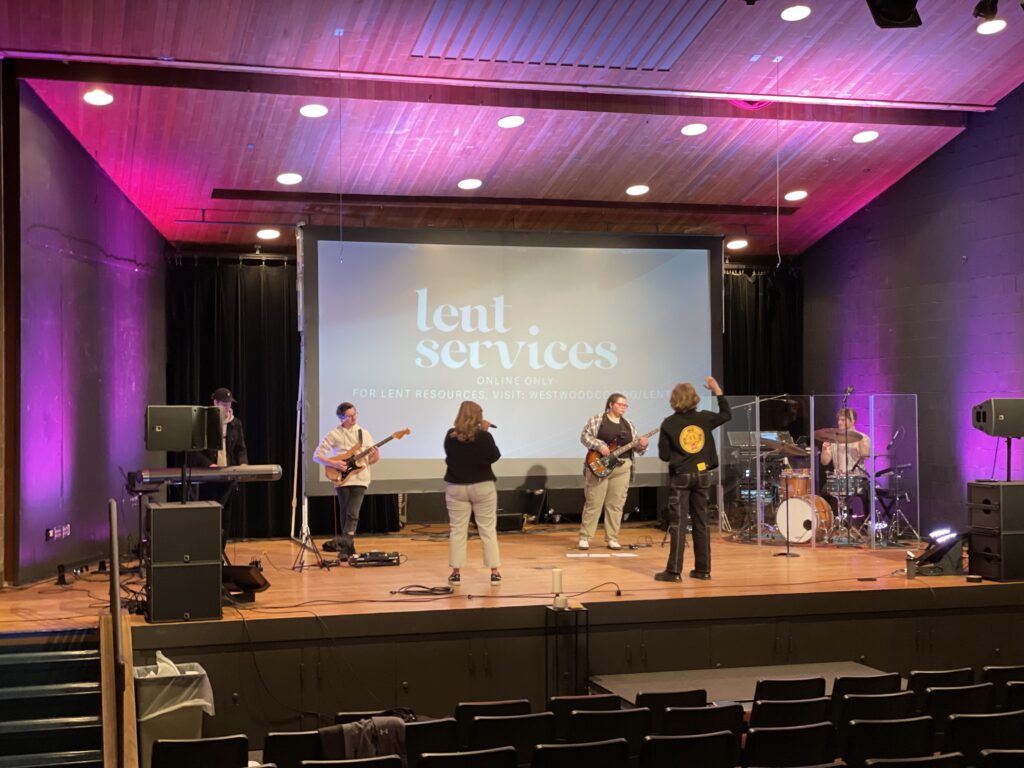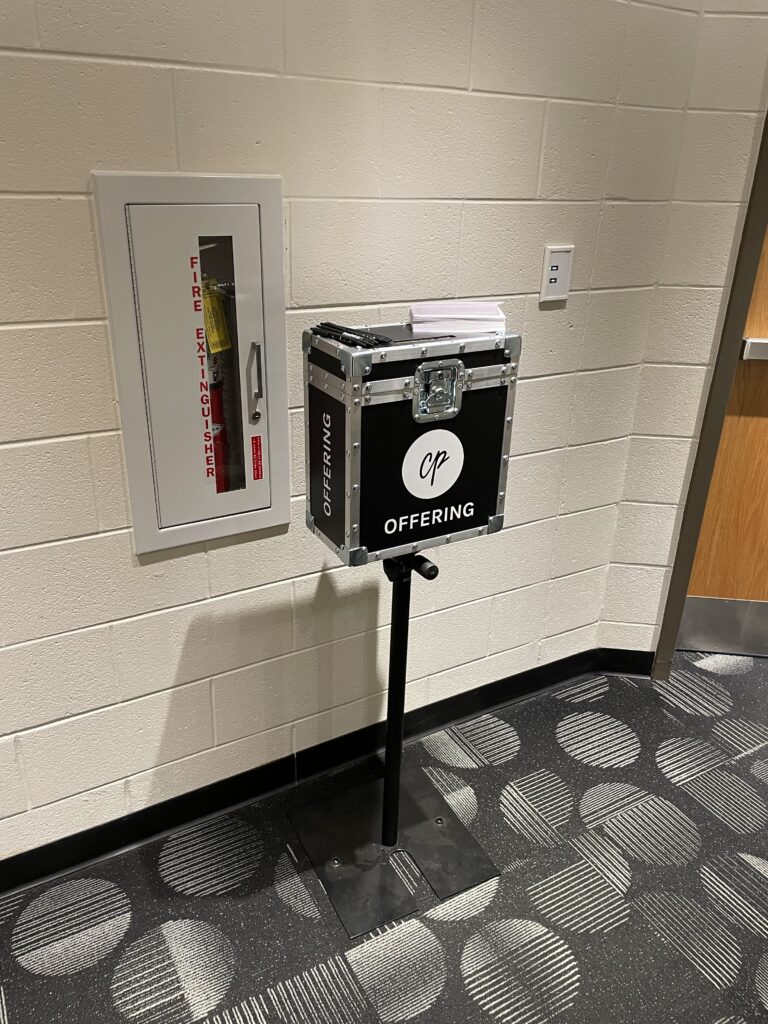Plant a church and expand the Kingdom by investing in the foundational steps explored in this article.
Starting a new church requires a solid foundation and getting some critical details in place with help to build just that. When a church has a solid plan for gathering a team, determining location, securing financing, and more, the church can begin with a strong foundation and make the launch phase smoother.
Not only does planning allow the church to anticipate potential obstacles and prepare for unforeseen situations, but it also minimizes the risk of costly mistakes, saves time and resources, and helps ensure a successful launch.
Here are things to have in place before you plant a church. Dive into these areas and build a clear plan.

5 Things to Have in Place Before You Plant a Church
1. Be confirmed in your calling to plant a church
Are you sensing God’s leading to plant a church? That’s exciting! The next step is to make sure that calling is confirmed.
To determine if you are called to plant a church, it’s crucial to evaluate your qualifications, skills, and readiness. This involves conducting a personal evaluation, which includes examining your strengths, weaknesses, areas for growth, and past experiences that could inform your work as a church planter. By completing this process, you can gain insights into your abilities and identify where you might need additional support. This step will provide a firm foundation for success in church planting.
Pro Tip: No need to go searching for this assessment. Your denomination will have a proven method for determining ministry fitness.
This step of undergoing an assessment is typical in the church planting process. If you’re considering launching a multisite church, you might request this type of evaluation to ensure readiness before embarking on such an endeavor.
In addition, trusted mentors and wise counsel can play a vital role in confirming a church planter’s calling. Seeking advice from leaders who have experience in the field can provide valuable insight into the process, as well as offer accountability and prayerful support.
Ensure a successful church launch by taking a readiness assessment to determine your strengths, weaknesses, growth areas, and experiences before planting or launching a church or multisite. Share on X

2. Gather a launch team before starting a church
Can you imagine planting a church alone? While it might sound nice to fly solo temporarily, teams are a critical component to a healthy launch.
A launch team not only provides critical resources, skills, and talent but also plays a significant role in reducing pastoral burnout. By having a team in place that is committed to carrying out the church’s mission, it bears the weight of the church’s vision, allowing the pastor and other leaders to focus on other critical areas.
When a launch team is well-prepared and well-organized, it greatly streamlines the decision-making process, keeps everyone accountable to the church’s goals and objectives, and fosters a sense of community and unity.
3. Articulate the vision, mission and core values of your church
While all of these components are different, each one of these keystones will greatly inform every step and decision as you plant a church.
Your church’s mission should encompass more than just providing weekly services; consider how you can create a sense of belonging and nurture relationships, particularly in a portable or multisite setting, while inspiring spiritual growth among your attendees.
At its core, having a clear mission statement helps distinguish your church from others. Ultimately, establishing the mission and purpose of your church sets the course for success in all future endeavors. Understanding this provides clarity on decision-making processes going forward, particularly for your launch and leadership teams.
Need some help developing your mission and vision statements? Church Fuel suggests recruiting a facilitator for the process, saying:
“An outside voice pushing the team forward and bringing fresh perspective can be just the thing you need to make considerable progress. Consider bringing in someone skilled in strategy and facilitation to lead your retreat. Or at least ask someone on your team who has demonstrated skills like this to be the facilitator.”
In summary, establish a clear mission and purpose to shape success and provide clarity as you embark upon a season of decision-making.

4. Research and choose the best church plant location
When researching to determine the best location for your church plant, have you considered the opportunities for outreach that the research process itself may provide? Furthermore, once a suitable location has been chosen, the church will be better able to reach even more people, thereby expanding its impact within the community.
In addition to visibility, accessibility, and potential cost savings, the right location can also secure long-term viability. Being in the best location for your church’s needs can minimize the risk of closure due to a lack of funding, low attendance, or community support.
To be prepared for a thorough search, here are a few surprising challenges we recommend you consider when deciding on a location:
- Zoning and land-use regulations
- Noise and parking restrictions
- Other churches in the neighborhood
- Competition from other churches
- Accessibility
- Community resistance
Although community resistance typically comes in the form of social comments, anticipating potential obstacles and problems is a wise approach to protect the church’s mission. By considering these possibilities in advance, church planners can be proactive in addressing concerns, minimizing damage and preserving the church’s integrity.
Find the right place to launch your next campus with our Community Finder.

5. Secure financing for your church launch
To maintain the financial sustainability of the church plant for long-term growth and development, it is important to explore different ways to secure funds before launching your church.
Although church planting has traditionally been funded by organizations, other pre-existing churches, or denominational support, this usually consists of just a stipend or support for a short period.
In addition to this support, churches can launch campaigns, offer matching grants, or simply film and publish an appeal video asking for donors.
But, to make sure the church is set up to run smoothly after the donations and denominational support have ended, the church’s ethos should include:
- A transparent attitude towards giving and donations
- Frequent calls to give and invest in the church’s mission
- Easy access to donating methods like online donation forms, text-to-give services, and traditional check-writing options
This will eliminate the sometimes-taboo nature of money discussions and also enable members of the congregation to show their support for the church in whatever form is most comfortable for them.
How can multisite churches raise funds with the help of other campus churches?
In the case of multisite churches, there are endless ways for the main campus or other campuses to support the launch of another location. Here are three of our favorite ideas from CauseVox:
- Volunteer Chore Team: Enlist a group of volunteers to do chores for community members for a specified cost.
- Collect and Sell Event: Ask church members to donate books or other specified items and create a team to sell items online
- Bail Out Event: Similar to a “Teacher in Jail” concept, the pastor is confined until the bail money has been raised.
Pro Tip: Get the youth involved in this event and have a blast with it!
We hope these insights can be a source of inspiration and help you to think of innovative ways to prepare for a church plant or multisite launch.

Church Planting FAQs
Below are answers to a few frequently asked questions regarding church plants, multisites, and portability.
Do I need to sign a facility agreement?
Yes! This is a best practice, and you should absolutely get your agreement in writing.
Do I need to know the chosen church plant or multisite venue before we proceed?
Having a venue secured before consultation is a best practice. We design everything to fit where you will be worshiping and hosting your church services.
How much does a system cost?
Every system is custom and there is no flat rate. Once we meet with you and discover your church’s needs, we can discuss costs. The first step is to book a 20-minute call with us.
What is an on-site consultation, and do I need one?
A consultation with a specialized team member is a critical step in ensuring that the portable church system you purchase best serves your church’s needs. For a complete system, a consultation is necessary.
Is there a way to do this cheaper? We have people at our church who are willing to volunteer their craftsmanship skills and supplies.
There are definitely ways to do it cheaper—in the short run. If you want a dependable system that won’t exhaust your volunteers, our custom solutions are the way to go.
For example, here’s what Jody, Campus Expansion Coach and Campus Pastor at Cypress Church in the Columbus area, had to say about the security our cases provide:
“I have been doing portable church for 15 years in multiple states, in different churches, and in wildly different roles. While brands of AVL gear matter and some gear is better than others, nothing has been more critical to making AVL excellent in my ministry experience than PCI’s design of their cases in every environment— but especially in the AVL world. I’ve done portable AVL without PCI and I will NEVER do it again.”
Although it may be tempting to opt for cheaper alternatives, we hope you consider experiences like Jody’s.
To get answers to more questions, feel free to book a call with someone from our team. We’d love to connect.
PREPARE TO EXPAND THE KINGDOM
Before you plant a church, it is essential to invest time and resources into the foundational steps that will ensure success. This includes exploring and confirming your calling, conducting research on optimal locations, and extending the financial resources necessary to get started, just to name a few.
These steps are not only important for the long-term viability of your church but also for establishing identity and clarity around your mission and purpose: to expand the Kingdom of God.
We are rooting for you! Reach out to book a free consultation call with us today.
Grab a copy of our 90-Day Launch Plan for Church Plants, a thorough plan to help you arrive at “Launch Day” fully prepared. Download your free checklist today!































































